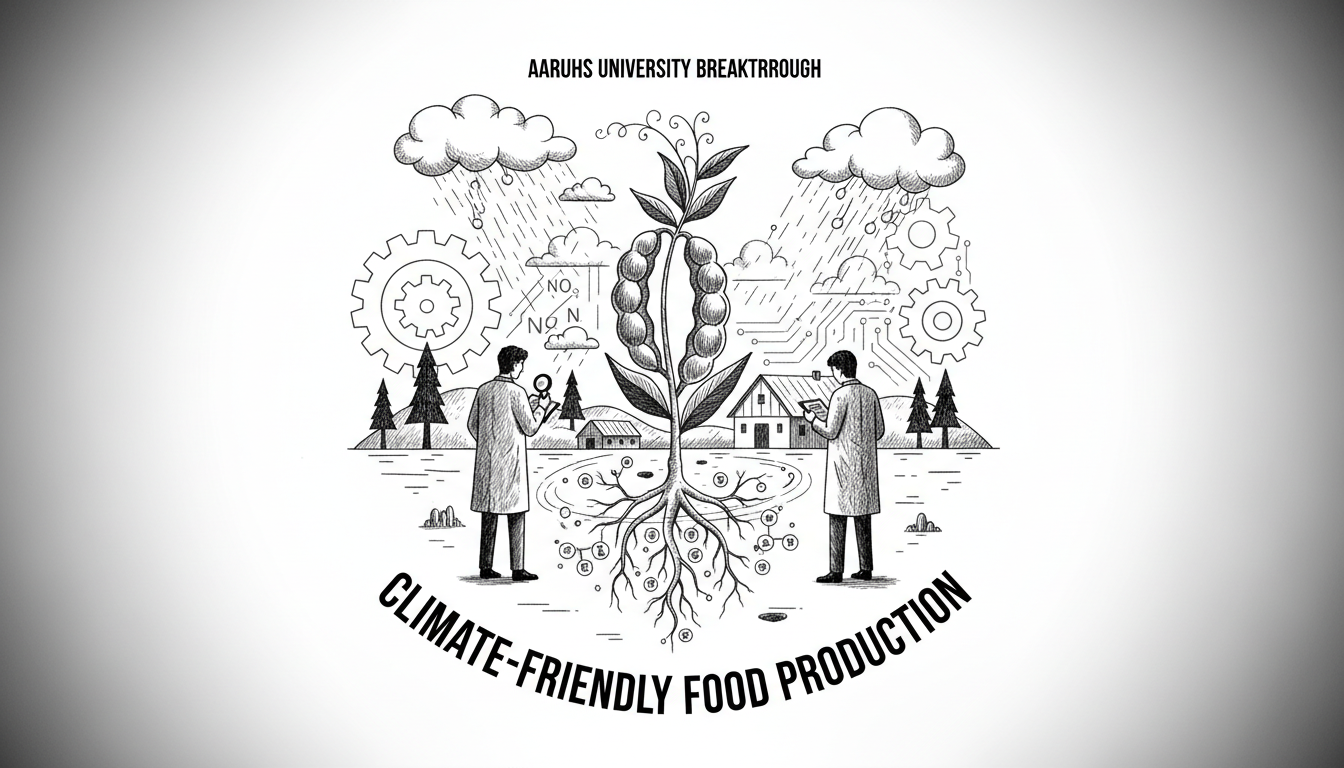Researchers at Aarhus University have made significant progress in understanding how some plants thrive without added nitrogen fertilizers. Their discovery could transform global agriculture and reduce the environmental impact of food production.
Most crops like wheat, barley and corn depend entirely on nitrogen fertilizers to grow. But legumes like peas, clover and beans operate differently. These plants form symbiotic relationships with bacteria that convert atmospheric nitrogen into usable forms.
Two molecular biology professors leading the research explained their breakthrough. Kasper Røjkjær Andersen and Simona Radutoiu said this brings science closer to greener food production methods. Their work focuses on the mechanisms that allow legumes to host beneficial bacteria in their roots.
Plants use receptors to detect signals from microorganisms. Some bacteria trigger defense responses as threats. Others are recognized as partners that provide nutrients. Legumes specifically invite nitrogen-fixing bacteria into their root systems, creating natural fertilizer.
This natural process means legumes grow without synthetic fertilizers. The global fertilizer industry currently accounts for about two percent of world energy consumption. Transferring this nitrogen-fixing ability to major cereal crops could dramatically reduce agriculture's carbon footprint.
The research team is working to understand the precise biological mechanisms. Their goal is transferring this capability to grain crops like wheat, corn and rice. Success would allow these staple foods to become self-sufficient in nitrogen requirements.
This development comes at a critical time for sustainable agriculture. European farmers face increasing pressure to reduce chemical inputs while maintaining yields. Denmark has been pioneering agricultural research that balances productivity with environmental concerns.
The practical implications are substantial. Farmers could potentially reduce fertilizer costs and environmental impact simultaneously. Countries aiming to meet climate targets would gain new tools for decarbonizing food production.
Research institutions across Scandinavia are collaborating on similar sustainable agriculture projects. The Nordic region has emerged as a leader in developing climate-smart farming techniques that could be adopted globally.
The Aarhus team's findings represent more than academic progress. They offer tangible hope for reducing agriculture's environmental footprint while maintaining food security. As climate pressures intensify, such biological solutions become increasingly valuable.

